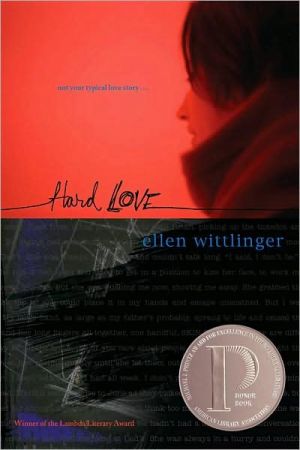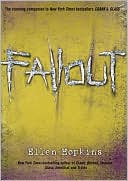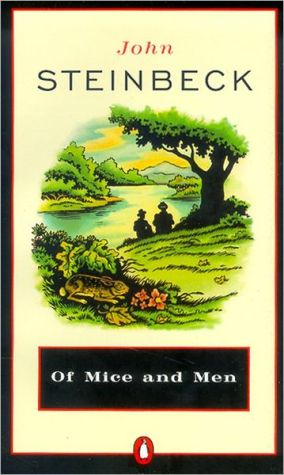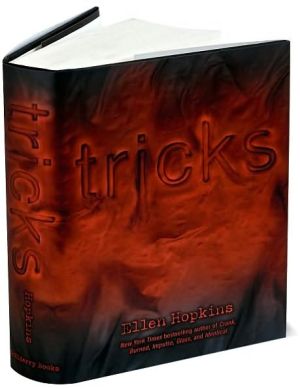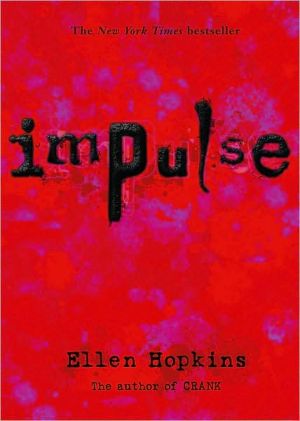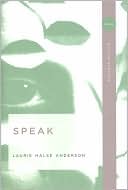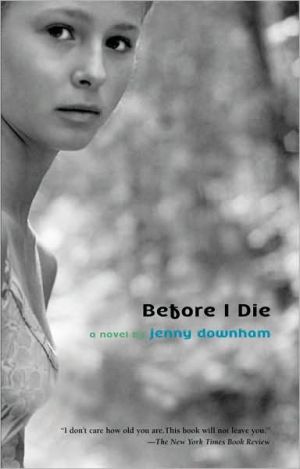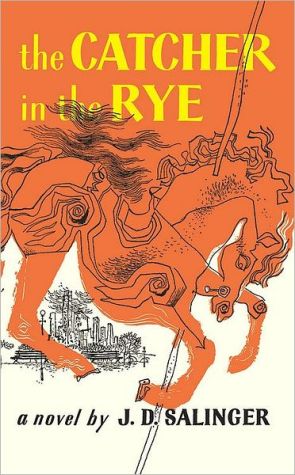Hard Love
Since his parents' divorce, John's mother hasn't touched him, her new fiancé wants them to move away, and his father would rather be anywhere than at Friday night dinner with his son. It's no wonder John writes articles like "Interview with the Stepfather" and "Memoirs from Hell." The only release he finds is in homemade zines like the amazing Escape Velocity by Marisol, a self-proclaimed "Puerto Rican Cuban Yankee Lesbian." Haning around the Boston Tower Records for the new issue of Escape...
Search in google:
Since his parents' divorce, John's mother hasn't touched him, her new fiancé wants them to move away, and his father would rather be anywhere than at Friday night dinner with his son. It's no wonder John writes articles like "Interview with the Stepfather" and "Memoirs from Hell." The only release he finds is in homemade zines like the amazing Escape Velocity by Marisol, a self-proclaimed "Puerto Rican Cuban Yankee Lesbian." Haning around the Boston Tower Records for the new issue of Escape Velocity, John meets Marisol and a hard love is born.While at first their friendship is based on zines, dysfuntional families, and dreams of escape, soon both John and Marisol begin to shed their protective shells. Unfortunately, John mistakes this growing intimacy for love, and a disastrous date to his junior prom leaves that friendship in ruins. Desperately hoping to fix things, John convinces Marisol to come with him to a zine conference on Cape Cod. On the sandy beaches by the Bluefish Wharf Inn, John realizes just how hard love can be.With keen insight into teenage life, Ellen Wittlinger delivers a story of adolescence that is fierce and funny — and ultimately transforming — even as it explores the pain of growing up.Publishers WeeklyPW said of this novel about the complex friendship between high school friends, "The awkwardness of awakening sexuality, a growing preoccupation with identity and crossing the line from friendship to more are themes here with which teens will readily identify." Ages 12-up. (Apr.) Copyright 2001 Cahners Business Information.
\ From Barnes & NobleThe Barnes & Noble Review\ Hard love? Frankly, John hasn't known any love in a long time. Ever since his parents were divorced, his mother hasn't touched him. To be more specific, his mother hasn't even accidentally grazed him with her hand when they both reach into the refrigerator at the same time. Strange? You bet, and it's been going on for years. His father isn't any better, effectively having checked out of John's life, too. John heads over to his dad's house in Boston every weekend, but his father leaves on dates long before the cheese on the pizza begins to coagulate. \ At school, John obscures his pain with aloof sarcasm. He hangs out with his pal Brian, but the two rarely move beyond wisecracks. John avoids conversation and connection. As long as he and Brian hang out, at least it looks as though each of them has a friend. It's a silent agreement between them — a pretend friendship. It's the best one John has. It's the only one, too.\ Ellen Wittlinger's challenging new novel,Hard Love, introduces us to this lonely teenager. He hides behind his wit. He wears his emotional scars like an invisible Mohawk or tattoo — with style, with the oblivious purposefulness for which teens are famous. You know John. You know that beneath that edge a smoldering heart lurks, ready to be found. Yet Wittlinger doesn't make it easy for anyone — including her readers — to find this wounded heart. She has bigger, more important plans for this complicated character. Her patience and honesty as a writer are gifts to teens everywhere.\ John's world turns upside-down when he comes across a sassyzinecalled Escape Velocity, a self-published magazine by a Boston teen named Marisol. John is startled but intrigued by her honesty and self-awareness. In print, out there for anyone to read, she calls herself a "lesbian private-school gifted-and-talented writer virgin looking for love." How on earth could a teenager know herself well enough to say all that? And where does she get the guts to say it in print?\ Inspired, John decides to create his own zine, not for self-exploration but more in the hopes of creating something for Marisol to read. After several fumbles, he connects with Marisol, who is angry, intense, and emotional in ways that John never imagined anyone could be.\ Here's where the magic starts. Rob Thomas, celebrated author of Rats Saw God and other popular novels for teens, calls Hard Love "hip...compelling...gutsy," and you'll see why as this unusual friendship unfolds. Maybe John has nothing to lose. Maybe he is so lonely that even another rejection wouldn't make his life any worse than it is. Despite his shyness, he pursues Marisol and tries to break through her protective shell.\ It works, surprising them both. Marisol is won over by John's earnestness and by his sexual ambiguity. She believes him when he says he's not trying to hit on her. He just wants to talk about writing, about zines. The two are a strange pair, and their friendship confuses everyone — including themselves. They talk about writing, honesty, their dysfunctional families, and their feelings.\ Author Ellen Wittlinger sublimely crafts John's awakening. Marisol challenges him. She stirs up feelings of longing and hopes for closeness that he buried inside himself long ago. When John begins to confuse his friendship with Marisol with romantic love, it's unclear whether he's headed for a fall or one of the most exciting journeys of his life. Frankly, it also is unclear if Marisol, a self-described lesbian, may be falling in love with John, too.\ Yes, this is a love story, but it's a hard one. Hard Love explores the sort of love that transforms us, makes us whole, and leads us into the wilderness of our own hearts. It's about the kind of love that supports us and makes us grow, but also rips us to shreds. Deep friendship is a difficult thing to find and to nurture. Wittlinger never simplifies John and Marisol's experience of friendship. She doesn't give the reader easy answers either. Provocative and refreshing, Hard Love is about the real stuff.\ —Cathy Young\ \ \ \ \ \ Publishers Weekly\ - Publisher's Weekly\ PW said of this novel about the complex friendship between high school friends, "The awkwardness of awakening sexuality, a growing preoccupation with identity and crossing the line from friendship to more are themes here with which teens will readily identify." Ages 12-up. Apr. Copyright 2001 Cahners Business Information.\ \ \ Children's Literature\ - Kathleen Karr\ Years after his parents' divorce, John is still tied in knots. Trying to learn to communicate again, he enters the "zine" world, producing his own personal little literary magazine. He's drawn deeper into this world by meeting Marisol, a free spirit and self-professed lesbian teenager. When friendship develops into love on John's part, emotional chaos breaks loose. Wittlinger's novel is tough and well-written. It delves deeply into the world of distressed teenagers with tight, believable dialogue, moving excerpts from "zines," and no apologies.\ \ \ \ \ KLIATTTo quote KLIATT's May 1999 review of the hardcover edition: Creative students, sometimes outsiders, have found ways to express themselves and connect to other people through the world of zines, homemade magazines. Wittlinger uses this zine experience as the background of her main characters in Hard Love: John (Gio) and Marisol, who each produce a zine and find each other through them. The actual setting is the Boston area, with well-realized descriptions of Cambridge, Tower Records (where the zines are exchanged for free), and Provincetown (on Cape Cod) where the two go to attend an impromptu zine conference...The story begins as John and Marisol first meet. Marisol is a petite warrior, a brilliant student, an in-your-face adolescent, who announces to John and the world (in her zine) that she is a virgin lesbian looking for love. John is fascinated by her strength and beauty, and thinks he is immune to her attractiveness because he is so pessimistic about love after the debacle of his parents' marriage. Marisol is obsessed with truth telling, but both discover the complexity and difficulty of doing so...The brilliance of the book is in the development of the characters of Marisol and John, and of their growing emotional entanglement. No part of this is simplistic, no part is easy to understand—and that is as it should be. "Hard Love," a folk song by a local songwriter, Bob Franke, becomes the means by which John and Marisol recognize what they mean to each other, "the love that heals our lives is mostly hard love." KLIATT Codes: JS*—Exceptional book, recommended for junior and senior high school students. 1999, Simon & Schuster, 230p, 21cm, $8.00. Ages 13 to 18.Reviewer: Claire Rosser; May 2001 (Vol. 35 No. 3)\ \ \ \ \ VOYA\ - Beth Gilbert\ Sixteen year-old John Galardi Jr. calls himself "immune to emotion"; his insecure mother avoids any physical contact with her son and his single, intellectual father spends their father-son bonding time in search of other women. Without a dependable peer base at school, John finds solace in the insular, underground world of homemade "zine" writing and publishing. Once he befriends the quirky (and homosexual) Marisol, a fellow zine writer, John's views on love, trust, and family take on completely new dimensions. Author Wittlinger brings the reader a refreshingly quick-witted teenage protagonist in John "Gio" Galardi; male readers will find an emotional and, at times, conflicted voice as he negotiates the unresolved issues between his divorced parents, his mother's impending remarriage, and his growing feelings for Marisol. One unique point to note is the integration of zine articles and poetry throughout the novel. In addition, the non-dramatic ending is plausible without insulting teens' intelligence. Remembering that adolescence is a trying time filled with questions and feelings, Hard Love is an intriguing and absorbing novel for the gay/lesbian and young adult collections of any suburban or rural library. VOYA Codes: 3Q 4P S (Readable without serious defects; Broad general YA appeal; Senior High, defined as grades 10 to 12).\ \ \ \ \ Library JournalGr 8 Up-John, "a witty misanthrope," meets and falls for zine writer Marisol, a "rich spoiled lesbian private-school gifted-and-talented writer virgin looking for love." A bittersweet tale of self-expression and the struggle to achieve self-love. (July) Copyright 1999 Cahners Business Information.\ \ \ \ \ School Library JournalGr 7 Up-In the first line of this Printz Honor book by Ellen Wittlinger (S&S, 1999), John Galardi, a junior at suburban Darlington High School, tells us that he is "immune to emotion." John spends his weekdays and nights living with his divorced mother, who has literally not touched him in the six years since her divorce from John's sophisticated father, with whom he stays every weekend in Boston. Both parents assume he is getting enough emotional support from the other. John likes to read the zines that he picks up in Boston. He particularly likes Escape Velocity written by Marisol Guzman, a self-proclaimed "Puerto Rican Yankee Cambridge, Massachusetts, rich spoiled lesbian private-school gifted-and-talented writer virgin looking for love." When she mentions that there will be a new issue of her zine at Tower Records the next Saturday, John decides to wait for her to deliver it when he drops off his own zine, "Bananafish." A friendship develops around their writing and loneliness. Marisol believes in always living life to the fullest and never lying, all new concepts for John. As Marisol insists that John harness his inner resources and develop a zest for life, she exposes him to new things art, music, coffee and feelings. He can't keep himself from falling in love with her, a kind of love that she can't return. Humor flows out of John's struggle with complete honesty and his desire to remain cool and detached. Actor Mark Webber's reading (Snow Day, Drive Me Crazy) is absolutely perfect in tone for John's confused, sarcastic coolness. With the slightest inflection of his voice, he aptly portrays all of the characters in the novel. Listeners are intimately drawn into the story by this young, angst-filled voice. There is a bit of strong language, although it is always appropriate to the plot. Young adults will love the wit and poignancy of these two clever teens striving to discover who they are and if they are capable of making emotional connections.-Jo-Ann Carhart, East Islip Public Library, NY Copyright 2001 Cahners Business Information.\ \ \ \ \ Horn Book MagazineJohn and Marisol have a lot in common. Both have issues with trust and truth-telling, both have problem parents, and both like girls. It's zine writing, though, that brings them together. John admires Marisol's honest, funny writing in her zine, Escape Velocity, and tracks her down to give her the first issue of Bananafish, his own photocopied, stapled-together zine. All goes well with their friendship until John professes his love for Marisol, who's made it clear from the start that she's definitely, emphatically, a lesbian. In this modern tale of unrequited love, secondary characters remain flat, and even John and Marisol sometimes seem more like types than individuals the snide, unfeeling guy and the tough, jaded lesbian working to hide their vulnerability. Adding a note of realism, though, are the pages designed to look like authentic zine excerpts, handwritten poems, and letters. For the most part, readers won't mind the teen flick cast and will be pulled along by the story and situations. It's at a zine conference that Marisol finally reaches "escape velocity," happily joining the lesbian contingent and following it to New York for breathing room-from John and from her therapist mom's suffocating affection. Although John is too upset by Marisol's departure to pay much attention to Diana, the sweet nature-girl zine writer who likes him, we know they'll end up together sometime in the near future, once he recovers from his first "hard love."\ \ \ \ \ Kirkus ReviewsChanging typefaces, canted blocks of text, and occasional pale background collages give this star-crossed romance a hip look, without compromising legibility. After 16 years of studied disinterest in the opposite sex, John falls hard for Marisol, who, in one of life's little ironies, is thoroughly, proudly out of the closet. Having encountered each other through their self-written, confessional "zines," the two find commonality not only in their love of writing, but in their bone-deep distrust of others: hers a result of how her adoptive family has behaved toward her, his the product of shuttling between his self-absorbed father and a mother so traumatized by the divorce that she never hugs or touches him. Meeting only on weekends, John and Marisol develop a clandestine friendship that is tested hard when John reveals his feelings for her (discovering them himself at practically the same time), and she in turn hooks up with a trio of lesbians and takes off for New York City. They do part friends, though, and if Wittlinger (Lombardo's Law, 1993, etc.) makes Marisol a little too sure of herself to be completely believable, her bittersweet portrait of an adolescent writer caught up in a quixotic first love will snare susceptible readers. (Fiction. 13+)\ \
